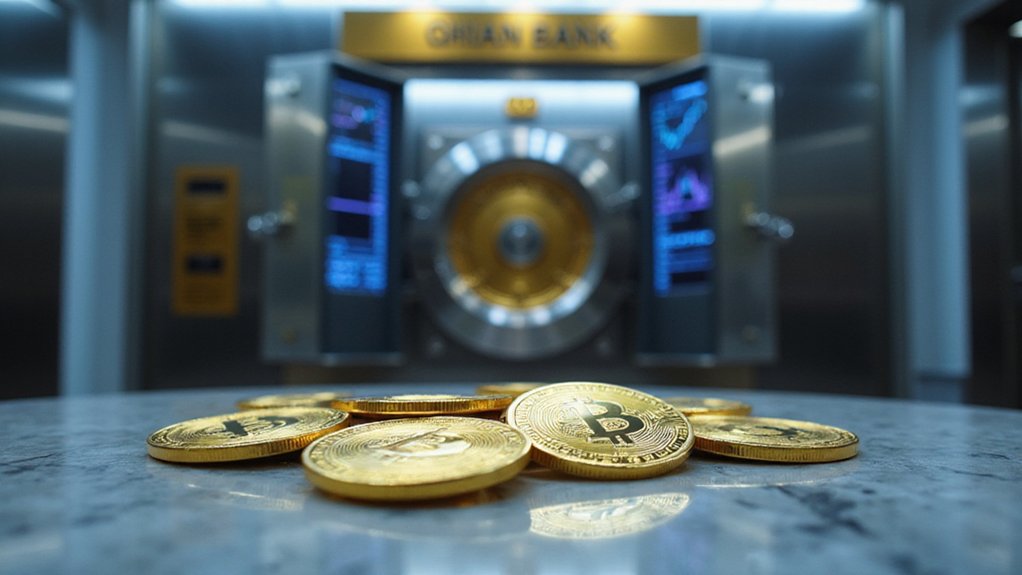How does a nation reconcile its century-old retirement system with digital assets that didn’t exist a decade ago? Australia’s answer involves threading cryptocurrency through the labyrinthine compliance requirements of Self-Managed Superannuation Funds (SMSFs), creating what can only be described as regulatory origami—complex, precise, and surprisingly fragile.
The statistics reveal the quiet revolution underway: Australian SMSFs held approximately AUD 227 million in cryptocurrency assets by December 2021, a figure that would have been incomprehensible to the architects of the Superannuation Industry (Supervision) Act 1993. Yet here we are, watching retirees navigate Bitcoin valuations alongside their traditional equity portfolios.
The architects of 1993 superannuation law never imagined retirees would someday balance Bitcoin alongside blue-chip stocks in their retirement portfolios.
The regulatory framework demonstrates Australia’s characteristic approach to financial innovation—embrace it, but wrap it in enough compliance requirements to choke a blockchain. SMSF trustees must verify their trust deeds explicitly permit cryptocurrency investments (because apparently, “investment in financial assets” wasn’t sufficiently specific for digital currencies).
More intriguingly, these crypto assets cannot be acquired from related parties, eliminating the tempting scenario where trustees sell their personal Bitcoin stash to their own retirement fund.
The operational requirements border on the Byzantine. Crypto wallets must bear the SMSF’s legal name—a requirement that sends shivers through privacy-focused cryptocurrency enthusiasts. Australian-based exchanges become mandatory gatekeepers, effectively barring access to overseas platforms that might offer better liquidity or pricing.
One wonders if geographical restrictions on digital assets represent the ultimate contradiction in terms. Funds must appoint an independent auditor accredited by ASIC to conduct these increasingly complex annual audits.
Record-keeping demands reflect the ATO’s understandable skepticism toward an asset class where “lost passwords” can permanently erase millions in value. Trustees must maintain thorough transaction records for five years while conducting annual valuations using “reputable exchange data”—a phrase that would have been oxymoronic in traditional finance circles just years ago. Additionally, the ATO accepts 30 June closing values from credible crypto exchange websites for compliance purposes.
The most fascinating aspect remains the intersection of technological innovation with institutional conservatism. SMSFs, originally designed to give Australians control over their retirement investments, now require trustees to master both superannuation law and cryptocurrency mechanics. The volatile nature of these digital assets means Bitcoin can experience dramatic price swings that traditional retirement planning models never anticipated.
It’s a regulatory evolution that perfectly encapsulates modern financial markets: simultaneously revolutionary and thoroughly bureaucratized, offering unprecedented investment freedom within meticulously defined compliance boxes.








